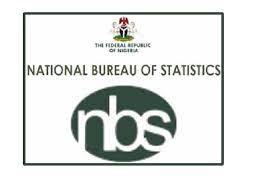The National Agricultural Seed Council (NASC) has revealed that some agro-dealers currently distributing seeds to farmers across the country under the government’s Growth Enhancement Support scheme (GES) are out to rob farmers.
The council further stated that it was strategising to weed out the fake agro dealers.
The Acting Director-General, NASC, Reverend Anthony Olatokun, made the disclosure at the council’s maiden press briefing on National Seed System. He also maintained that most seed companies and agro-dealers were not genuine but were out to rib off farmers.
Olatunkun said: “On the issue of fake seed companies or agro-dealers who are not qualified to be in the business. We are strategising, because we have identified that some of them are not genuine, and this year we will weed them out as we are also not sleeping but working hard to address the menace of fake agro-dealers, who sell fake farm inputs to farmers. Their activities are becoming rampant and they abound in the seed trade.
“This wet season farmers will pay 10 per cent for the seeds bought this is because of what we are hearing, that farmers wash and eat these seeds because they got it free from government under the Growth Enhancement Support, and we do not want this continue. Meanwhile, hybrid seeds are purely commercial and we encourage seed companies to go into it.
“With the repositioning of the National Agricultural System and the Seeds Council to meet the challenges of the time, the Federal Government is set to implement the predictable, reliable user friendly and affordable regulatory environment for flourishing and rewarding seed industry to ensure that farmers have access to high quality seed at the right time, place, quantity and affordable price.”
Olatokun further stated that the council partners with security agents like the Nigeria Security and Civil Defence Corps, NSCDC, and the Nigeria Police to monitor the distribution of seeds and also to arrest fake agro dealers who had not complied with the council’s regulations.
Olatokun said that the council under the GES had released 45, 000 metric tonnes of rice and 47, 000 metric tonnes of maize seedlings to farmers for 2014 wet seasoning farming. He added that 150, 000 metric tonnes of seeds came from 128, 000 hectares of seed land.
Olatokun also decried the dearth of seed technologists, analyst, breeders and technicians in the agricultural sector that would have enhanced high food production. He said most of the equipment in the laboratory being used by his officers in seed testing was obsolete.



